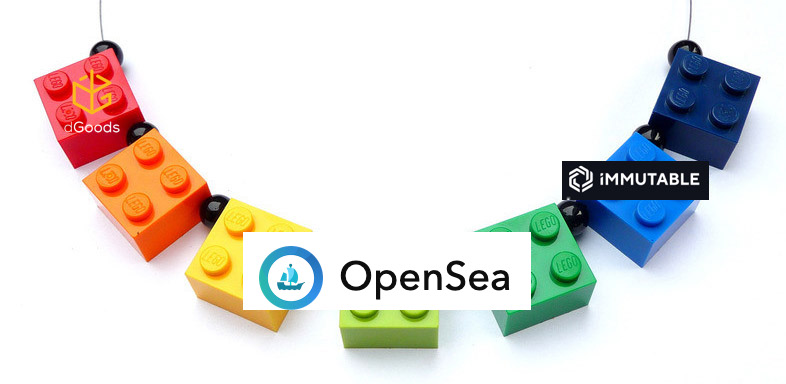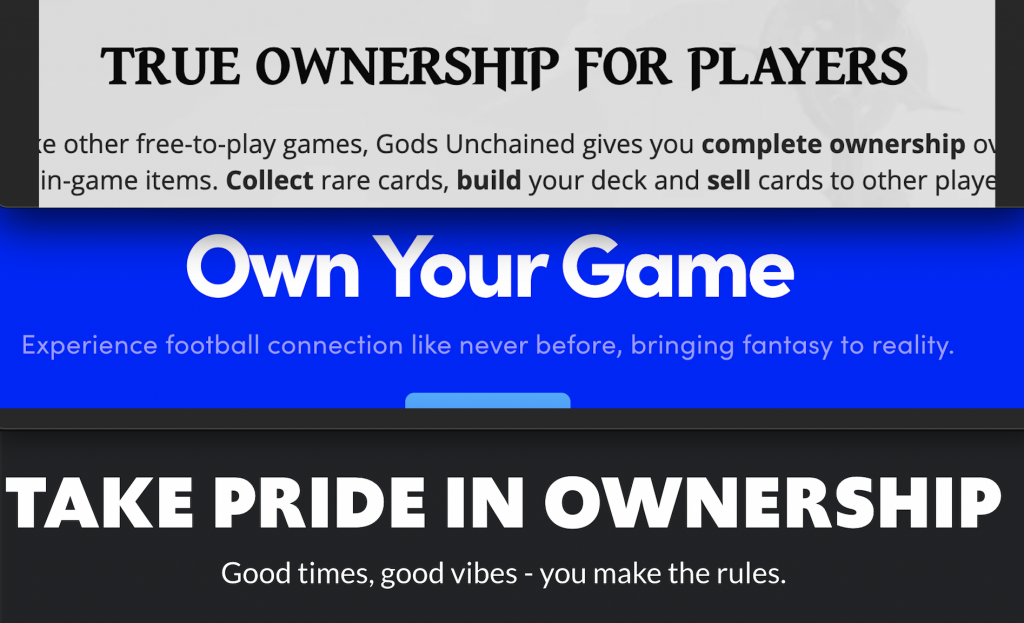
Blockchain gaming companies like Immutable and Mythical use games to “prove out the tech”. This strategy places games as a means rather than an end. But what exactly is the technology to prove and what are the gains to proving it?
Games as a technology loss leader are nothing new. Steam launched under Half-Life, and Gears of War functioned as an Unreal showcase. Fortunately, there wasn’t much loss as both products were runaway consumer success stories. Improbable recently founded three game studios to prove out its Spacial OS and Facebook acquired Oculus as a technology company, not a gaming company. In all cases, gaming is/was a trojan horse for developing a technology platform. Recall that Unreal is now not only an engine but increasingly a marketplace platform. Conversely, I argued in Game Companies Are Not Tech Companies:
Game platforms have, and will always be, valueless: there is far too much game specificity and velocity for meaningful platform features to scale.
Do Immutable and Mythical represent an exception to the rule? On the surface, it appears so. Both firms are building NFT marketplaces with potential outside of games. Blockchain-based trading is full of friction from sky-high gas fees to hour-long processing times. If they can solve it for their own games, they can scale the solution to others. Marketplaces like Immutable X promise to end gas fees and improve transaction speed. The pitch to developers is clear: list your assets on our marketplace and reap the benefits. For Immutable and Mythical, a transaction tax provides a stable revenue share model. Grow the number of transactions on the platform and grow revenue. But the open nature of blockchain threatens the entire model from working.
Card owners in God’s Unchained are not obligated to list cards in Immutable’s marketplace. This what blockchain gaming firms position as “true ownership”.

In fact, players could list the card across dozens of marketplaces. Multi-homing or listing content across multiple platforms is consumer welfare-enhancing at the cost of platform power. For example, delivery services like Uber Eats, Foodora, and Wolt share many of the same restaurant listings. Restaurants maximize audience reach by listing on as many delivery services as possible. And restaurants face declining marginal cost curves for listing on another delivery service. Even end customers multi-home by installing multiple delivery apps on their phones. This forces delivery services into aggressive and deep discounting.
Fortunately, marketplaces have more design space than delivery services. In the long run, however, what is the ceiling for marketplace fees? Apple has taken a lot of heat at 30%. Valve never has to ponder the answer – items on Steam marketplace can only be on Steam marketplace. Public blockchain marketplaces, by definition, compete for content. As a result, blockchain empowers game makers against game platforms.
Ethereum-based blockchain games allow developers to insert blocks of code called “smart contracts”. No matter where the asset travels, the contract follows. The contract is a part of the asset itself. A developer might leverage this to attach a kickback on every transaction. It could read, “Every time this good transfers, {the developer} receives 30% of the selling price.” Such code allows developers to be marketplace listing agnostic. Developers only need to focus on producing new assets and increasing the value of old ones. This is good for blockchain players who are inadvertent shareholders of the games they play.
Dominant blockchain marketplaces will emerge despite this. Uber Eats is highly profitable and Deliveroo IPO’d at $4.5B. But at the margin, content has never more been king. And this means the gains to being a content holder have increased. Consider video streaming content where TV showrunners now ink nine-figure deals. If blockchain gaming takes off the competition for marketplaces will be fierce. On the other hand, it’s never been a better time to be a content holder.